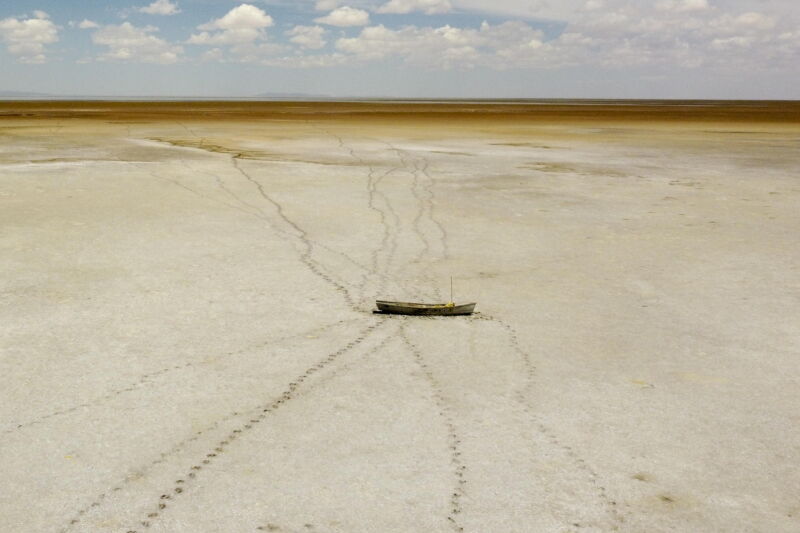
Enlarge / Aerial view of an abandoned boat on a desert at the site of former Lake Poopó, near Punaca Tinta Maria, Bolivia, taken on October 15, 2022. (credit: Martin Silva/AFP via Getty Images)
Water storage in many of the world’s biggest lakes has declined sharply in the last 30 years, according to a new study, with a cumulative drop of about 21.5 gigatons per year, an amount equal to the annual water consumption of the United States.
The loss of water in natural lakes can “largely be attributed to climate warming,” a team of scientists said as they published research today in Science that analyzed satellite data from 1,980 lakes and reservoirs between 1992 and 2020. When they combined the satellite images with climate data and hydrological models, they found “significant storage declines” in more than half of the bodies of water.
The combination of information from different sources also enabled the scientists to determine if the declines are related to climate factors, like increased evaporation and reduced river flows, or other impacts, including water diversions for agriculture or cities. A quarter of the world’s population lives in basins where lakes are drying up, they warned.
Read 20 remaining paragraphs | Comments
